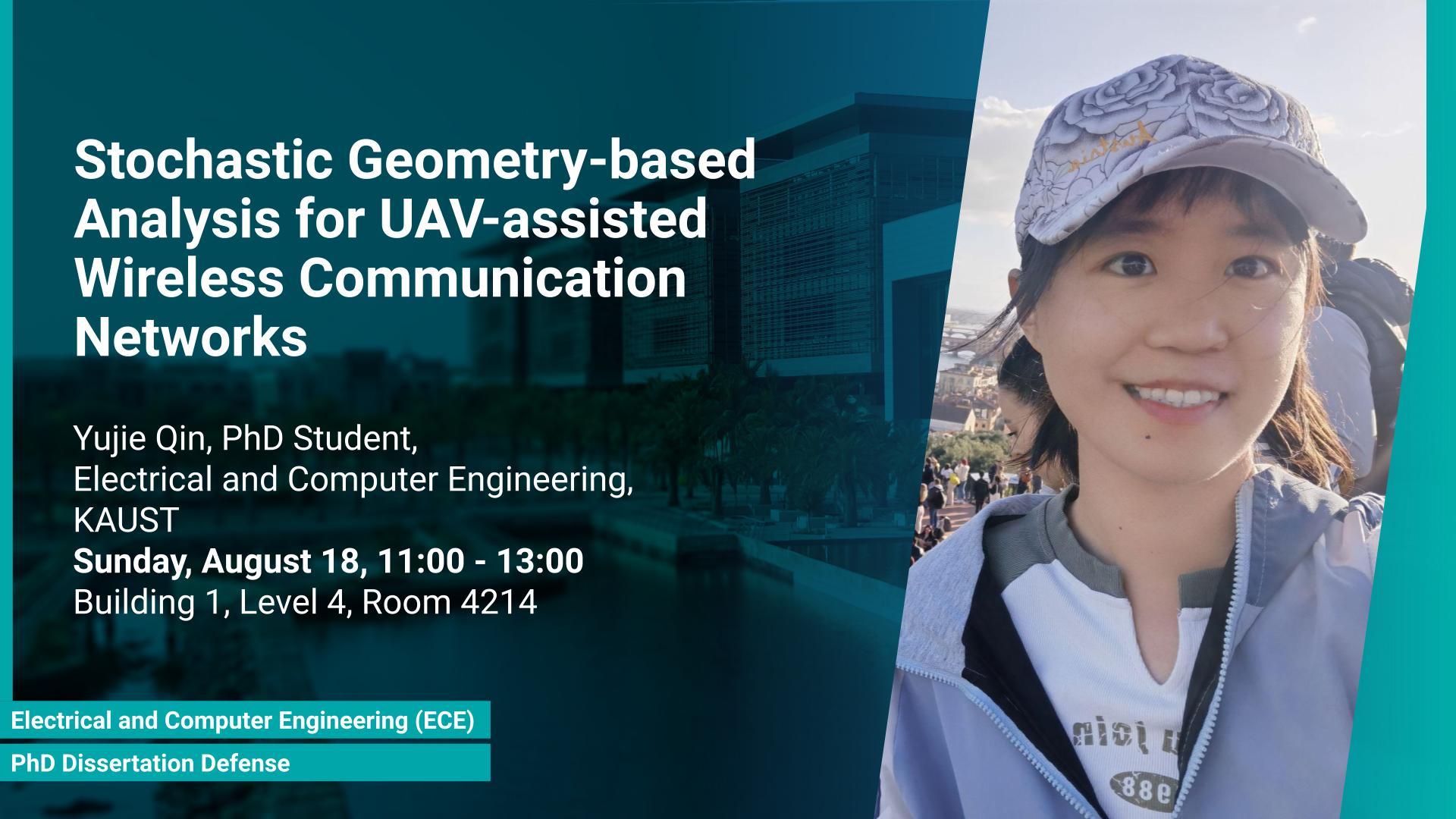Event Start
Event End
Location
Abstract
The meta distribution of the signal-to-interference-plus-noise ratio (SINR) provides fine-grained information about each link's performance in a wireless system and the overall network reliability. While UAV-enabled networks have been extensively studied, most works focus on spatial average performance metrics, such as coverage probability, with less attention given to SINR meta distribution. This dissertation first proposes a novel approach for computing the SINR meta distribution in wireless networks using a dominant interferer-based approximation. This method simplifies analysis by combining exact and mean-field interference analysis, bypassing the need for traditional moment computations. The approach is validated across various point processes, including Poisson point process (PPP), Matérn cluster process (MCP), and Poisson line Cox process (PLCP). Understanding the meta distribution concept, we extend it to UAV-assisted communication networks. We systematically analyze the improvement and influence of UAV deployment on network reliability, deriving the b-th moments of the conditional success probability and providing approximated expressions using the Gil-Pelaez theorem and beta approximation. Numerical results show significant improvements in system reliability with UAV deployment, especially for spatially clustered users. Considering Peak Age of Information (PAoI) as an application of SINR meta distribution, we analyze PAoI in UAV-assisted IoT networks, demonstrating the effects of different resource allocation strategies on performance. Extending this analysis to moving IoT devices, we present a framework to assess the impact of user velocity on PAoI distribution for both ground and aerial users. The dominant interferer-based approximation shows good matching performance in complex scenarios and proves effective in computing spatio-temporal correlations, providing valuable insights for enhancing wireless network reliability and performance.
Brief Biography
Yujie Qin is a PhD student in the communication theory lab at King Abdullah University of Science and Technology (KAUST). She received her B.Sc. degree from University of Science and Technology of China (UESTC) in 2020, and M.Sc degree from KAUST in 2021. Her current research interests include stochastic geometry and UAV communication.


